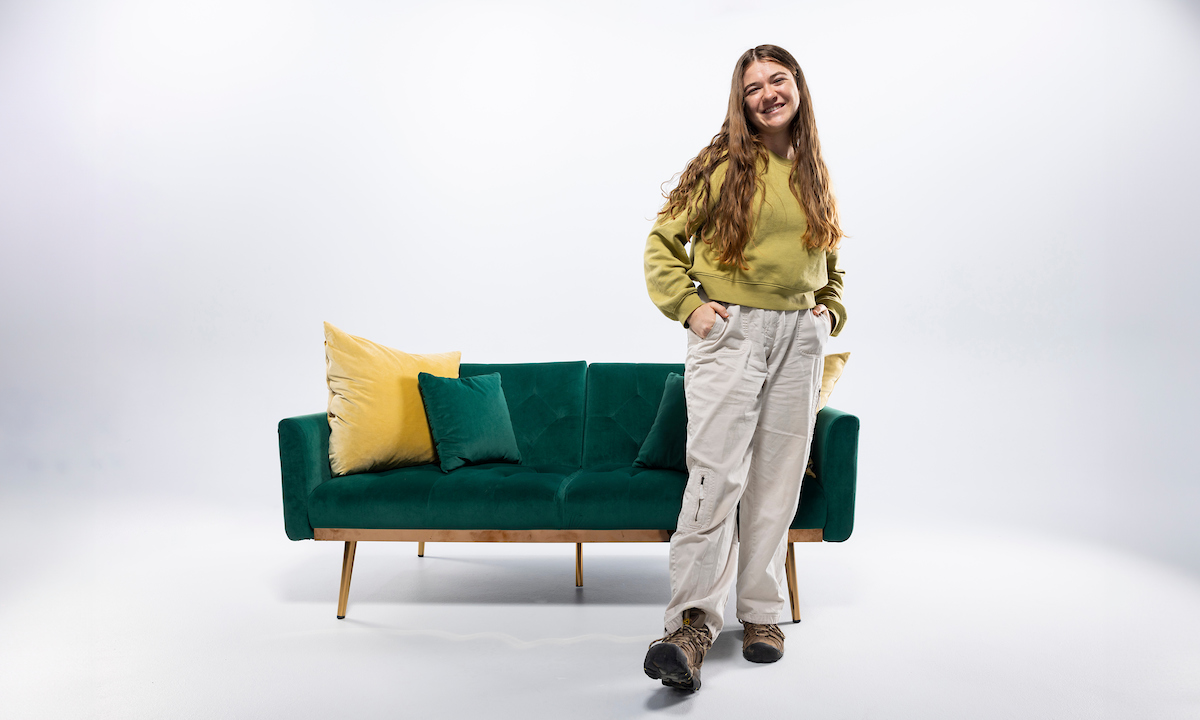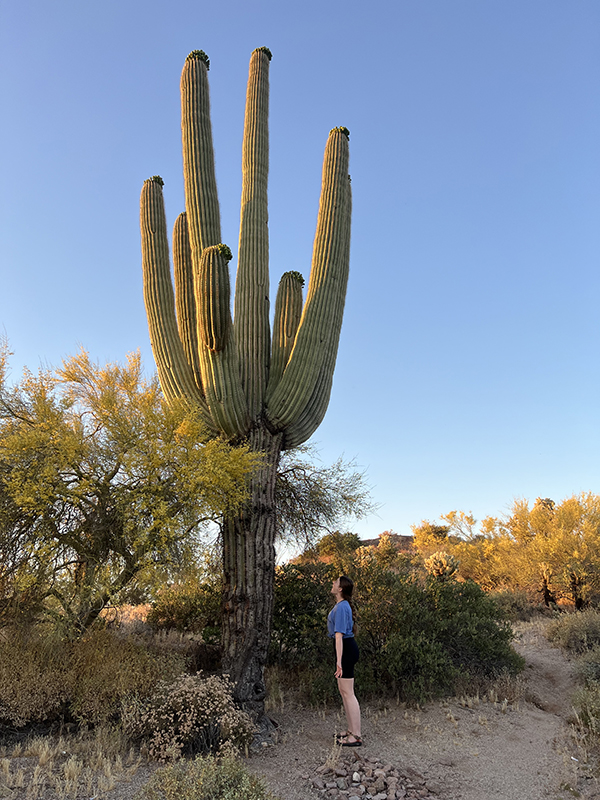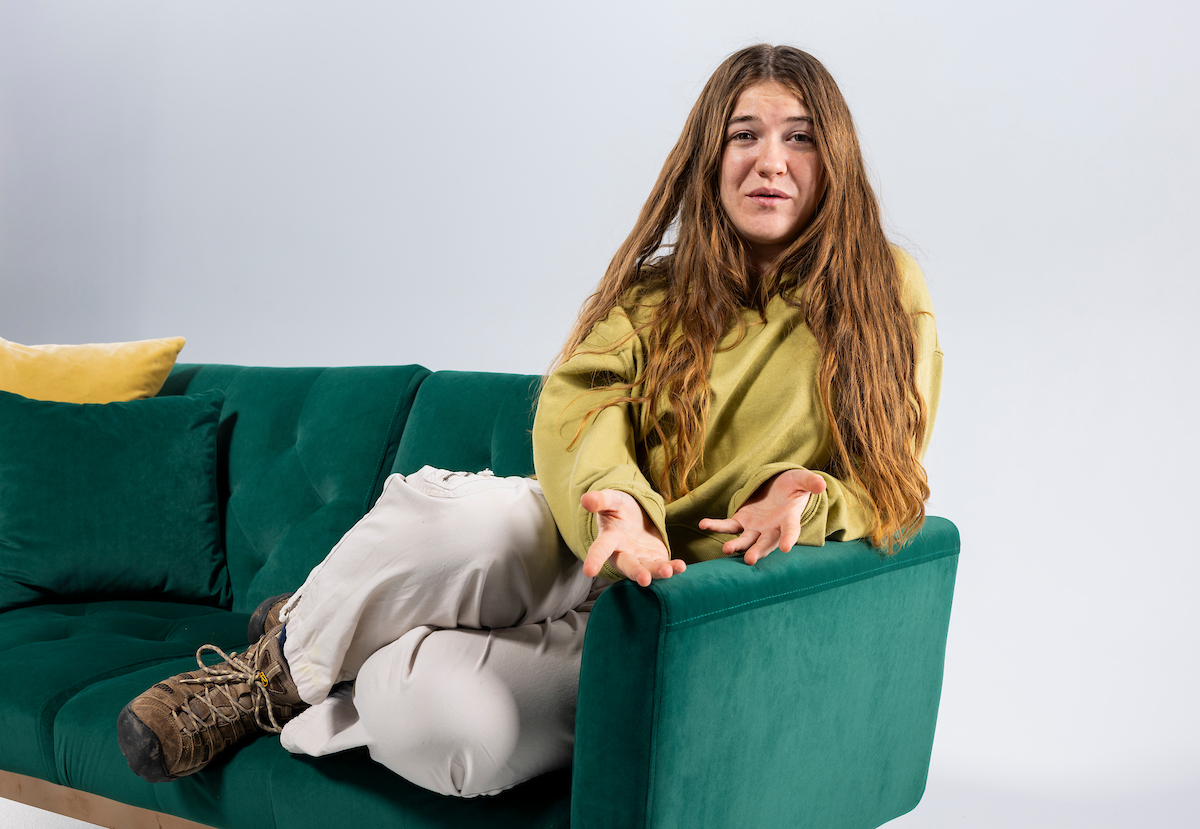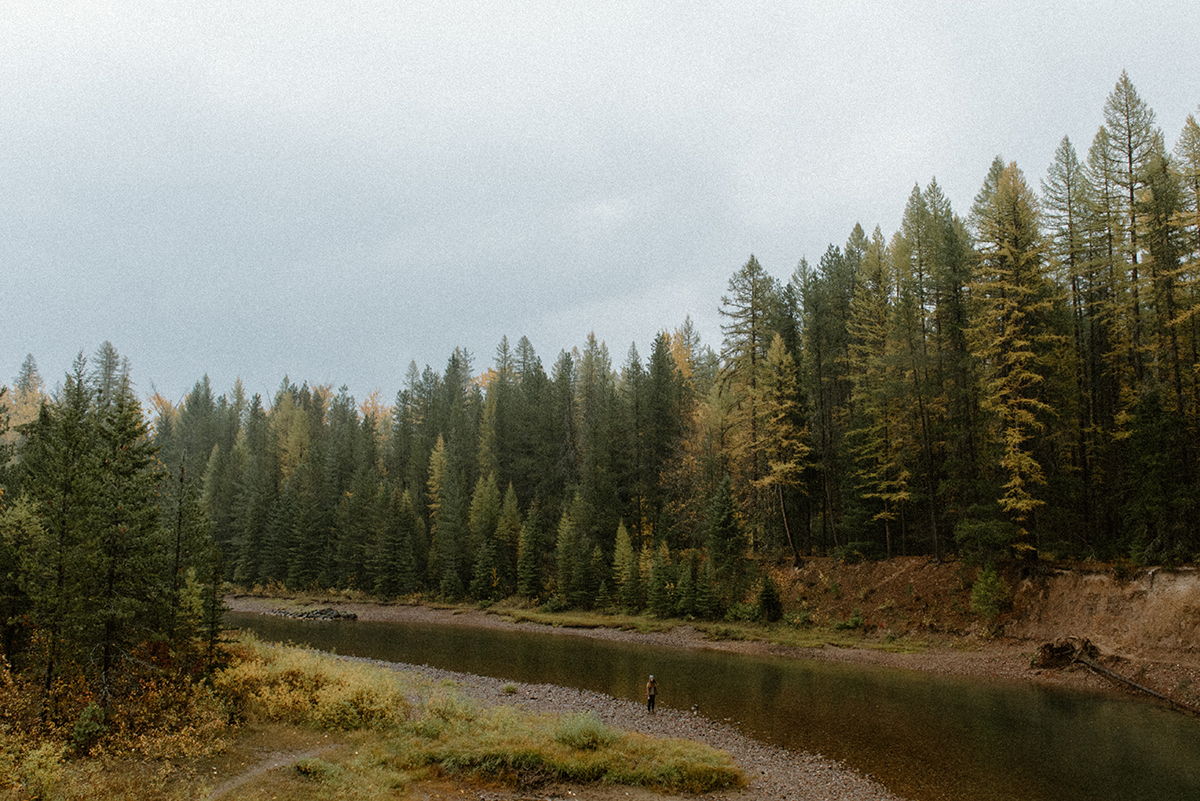As told by David Nelson
UVU is a place for me — it's a place for scientists, it's a place for people who are trying to find their way in this world.

Photo by
I grew up in Southern Utah. It's very beautiful there and makes it easy to love the natural world. I knew I wanted to go into science and that I loved being outside. Over time, I realized plants are so cool; I'm alive, they're alive, but we do it so differently. Yet we're experiencing the same thing. The sun rises at the same time for us. We have the same stars overhead, the same temperature of the air around us. But our experiences are so different, and I think that is so interesting. I could just spend the rest of my life learning about plants and never get bored.

I came to UVU. It was an easy choice to make. I had a better scholarship here than I did at other schools. At the time, I didn't know that I wanted to study plants — I didn’t know what I wanted to study at all — so I figured there was no wrong choice to make.
I took a break from school; I was not having a great time. It was a hard transition from high school for me, and it didn't help that everything was online at the time. I took a break from school, and it was then that I found my purpose — I found that direction. I decided, “I’m going to go and be a botanist,” and I found out that UVU offers a degree in botany. I think I stumbled onto the absolute correct path for me.
On my [church] mission in the Midwest, I found a big appreciation for the natural world. Part of it was because it's very urban in Detroit, Toledo, Cleveland, and these big cities. You look up at the sky at night, and it's either too cloudy or there’s too much light pollution to really see the stars. I grew to appreciate the natural world more because I felt more removed from it.
You don't think of big cities when you're thinking about the natural world, yet it is so beautiful there. I had someone from Chicago tell me that out here in the West, in places like southern Utah, there’s this really obvious beauty that smacks you in the face. But in the Midwest, even in those very urban environments, it's also beautiful, but it's this beauty that creeps up on you. You have trees and plants and everything growing out of the sidewalks, but it's different from being in a forest or a more pristine environment.

After my mission, I began studying botany. I realized that I still really loved astronomy — I loved the night sky and looking up at the constellations. I took an extension course from another university on dark sky observations, and I got a greater foundation of knowledge in astronomy in general, but also about light pollution and about dark sky advocacy. We need the stars; we need dark skies. I think so much of being a human is contained in looking up at the stars. No matter your background or where you come from, your ancestors had a relationship with the night sky. They had rich stargazing traditions. They knew the night sky and could look up at the sky and tell you the time of year it is, whether it's time to plant or harvest; they could point out the patterns, the constellations, and tell you their stories.

Now we have all these lights, and all of a sudden, that tradition is gone for us. We don't depend on the night sky to be a calendar anymore. It's very sad that we have lost that as a people. You have to drive hours into the country for dark skies. And you probably don't have someone to teach you the constellations — you’ve got to use an app on your phone to look, and then you've looked at a screen, and now your night vision is not so good. It's harder now than it was, and so it's very sad that we've lost that. But it's also hopeful because light pollution is a very solvable problem, much more so than other environmental issues we have, because the moment you turn off lights, the light pollution is gone. It's a problem that is 100% solvable.
Dark sky ecology is kind of my two great big interests coming together. I knew a lot about how artificial light at night affects animals and how it affects people, but I don't really know how it affects plants. So, I started to ask around; I asked some of my professors that question, and they said it's understudied. I wondered if I could do something about that.
I've joined a research lab with one of my professors, Professor [Michael] Rotter, and we're trying to design a project right now to look at how artificial light at night is impacting plants local to the Wasatch Front. It's still very nebulous right now. Dr. Rotter has been instrumental in all of this. He's been so supportive of me and my independent research and just the most wonderful resource.

There's this very Western idea that the best thing we can do for the land is to leave it alone and just don't touch it. But that's not true. Certainly, a lot of people have known for a long time that that's not true. From what I've read and what people have told me, we are not disparate from our environment. Because to me, saying that I love nature so much but the best thing I can do is leave it alone is saying I don't think it loves me back. Nothing could be further from the truth. The world, nature, and the land clearly love us. Why are the stars so beautiful? Why is the world so beautiful? Why do we love the sound of the ocean or waterfalls? Because it loves us, and in loving it back, we don't have to take a step back and just leave it alone. We can be a part of it.
I hope to connect people to the natural world for the rest of my life. I've done that working as an astronomy guide. I hope to do that with my research to show people that the world is beautiful and that it is facing its problems created by people but that we can do something about it. We can be dark sky advocates — we can turn our lights off, we can shield our lights, and whatever the solutions are that exist, we can be a part of that. Then, this natural world and its natural beauty become more available to us and to the critters and plants that depend on it.

UVU is a place for me — it's a place for scientists, it's a place for people who are trying to find their way in this world. [It’s a place for] those who have all these interests that maybe don't seem to go together. Because what do botany and astronomy have to do with each other? This is the place where those things can come together.